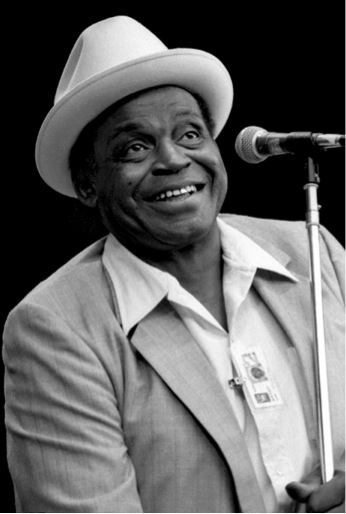By David Dodd
Here’s the plan—each week, I will blog about a different song, focusing, usually, on the lyrics, but also on some other aspects of the song, including its overall impact—a truly subjective thing. Therefore, the best part, I would hope, would not be anything in particular that I might have to say, but rather, the conversation that may happen via the comments over the course of time—and since all the posts will stay up, you can feel free to weigh in any time on any of the songs! With Grateful Dead lyrics, there’s always a new and different take on what they bring up for each listener, it seems. (I’ll consider requests for particular songs—just private message me!)
Searching for a song for this week, this week in which we lost Robin Williams, I realized that “Eternity” might be a good choice. Plus, it’s a Bob Weir composition (with Rob Wasserman), and it’s definitely time for a Weir tune, after about four or five straight Garcia songs.
Co-writing a song with one of your personal heroes—that seems like a dream come true.
Willie Dixon (1915-1992) was one of the preeminent blues songwriters and performers of all time. The Grateful Dead covered a fairly lengthy list of his songs, attesting to his influence on the band: “Down in the Bottom,” “I Ain’t Superstitious,” “I Just Want to Make Love To You,” “Little Red Rooster,” “The Same Thing,” “Spoonful,” and “Wang Dang Doodle.” Plus a couple they only played once, or only in soundcheck.
The song was written during the sessions for Rob Wasserman’s Trios album. “Guitar Player” magazine ran an interview with Weir in 1993:
I had this chord progression and melody that I wanted to run by Willie to see if he liked it .... he did, so he started dashing off words. He wanted me to run a certain section by him again and stuff like that, and we started working on a bridge. Then he dashes off this sheet of lyrics and hands it to me. Now I'm really stoked to be working with the legendary Willie Dixon and I'm prepared for just about anything.
He hands these lyrics to me and I'm reading through them. And they seem, you know, awfully simplistic. Like there wasn't a whole lot to them....
....Now he wants me to read through it and sing the melody I have and see if they fit. And so I started singing through these simplistic lyrics, and that simplicity takes on a whole other direction.
By the time I had sung through them, it's like my head is suddenly eons wide. I can hear what's happening just sort of echoing around in there and I'm astounded by the simple grace of what he has just presented to me. I'm sitting there with my mouth open literally, and Willie's laughing. He's just sitting there laughing, saying, 'Now you see it. Now you see it. That's the wisdom of the blues.'
Willie Dixon at Monterey Jazz Festival, 1981. (photo by Brian McMillen)
Creative Commons license
Opinions differ as to the song’s viability, overall quality, and worthiness, but there were times when the song was played in shows that the long, drawn-out “E-ter-ni-ty” struck just the right tone.
Weir seems to consciously take what could have been a fairly innocuous pop tune and put it into a hard left turn in several places in the song, but most notably in that chorus, with the backing vocals chanting “E-ter-ni-ty.”
Weir’s songs from this era (anything from “Victim or the Crime” forward) seem aggressively innovative, shall we say. The rhythmic patterns, the big multi-layered chords, the changes in meter and tone, all add up to something that seems calculated to disrupt any comfort we might have been sinking into. OK, I didn’t say that very well, but anyone who has struggled with these late-period Weir songs knows what I mean.
Dixon’s words do seem simplistic, yes. But they are big-concept lyrics. They tell only the sketchiest, most universal of love stories: our love will never die, even though the whole world will eventually end.
The song challenges me to wonder if that is really true, or if it’s just a hopeful platitude. Is there meaning in the here and now of our life and loves that transcends even the end of the world (as we know it)?
Cynicism, I have noted off and on throughout my life, is all too easy. It’s the easy answer, to say: what a load of crap. What a naïve, simple approach. Where’s the meat of the argument?
It’s much more difficult, I find, to credit the optimism and the hopefulness of our fellow beings on this fragile planet. But it’s a worthwhile exercise. This song is about our place in the long time-line of existence of all things. How often do we stand back and think about that? And when we do, isn’t it a lot easier to think of ourselves and our lives as meaningless specks against the sprawl of space and time?
Anne Lamott wrote this past week about Robin Williams’s death, and what meaning she can extract. She said this: “"Try not to squander your life on meaningless, multi-tasking bullshit. I would shake you and me but Robin is shaking us now."
There’s another song in Weir’s songbook, never performed live, that actually sort of gets at this same thing. I’m talking about “Walk in the Sunshine.” Given Anne’s words from this week, I might re-write one line from that song: “You got to deep-six your smart phone.” Because the things it seems to capture are just—the movements of our hands. Or something like that.
Dixon seems to me to be telling us something pretty important.
Well I think about life, we don't know
Whether it all could be in vain
Look through time, it's for sure
It's the greatest gift to man



